#eugine onegin
Explore tagged Tumblr posts
Text
You know, you don't get many new novels that are just a person's name anymore, unless the name is particularly unique, and it's almost always part of a phrase. In the 18th and 19th century you'd just have novels like Jane Eyre, Anna Karenina, Emma, Pepita Ximenez, Frankenstein, Tess of the D’Urbervilles, Marianela, Sister San Sulpicio, Madame Bovary, David Copperfield, Eugine Onegin, and so on.
These are well-known classics by famous authors now, but it must have led to a lot of people fucking up and bullshitting that they read the author. "Oh, yeah, I read Henry Fielding by Tom Jones, sure." Huge social faux pas.
12 notes
·
View notes
Text
Top 10 Favourite Books I Have Read (So Far)
As a writer myself, I can’t help but look back at the novels that have shaped the sort of writer I have become today, and helped me find my own unique voice. A good novel captivates, puts it’s twists in all the right places, and makes you think about the story long after you have finished reading it. It makes you contemplate what it is to be human. It hits you hard and leaves a lasting impression. I thought I could share a few of them with all of you. Without further ado, here goes:
Anna Karenina, Leo Tolstoy (1873)
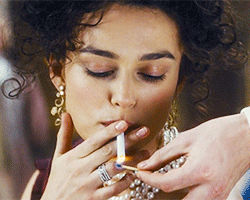
It's a story as old as time; someone, bored with their life, risks it all to have an affair; but this one is special for a number of reasons. First, it serves as a commentary about 19th century upper-class Russia, a time when it wasn't necessarily scandalous to have an affair, but it was scandalous to leave your husband or wife because of it. Many people conducted their affairs in secret, but the passion Anna felt for Vronsky spilled over into her everyday life, and because she had suppressed feeling any kind of emotion for so long, the passion she felt was obsessive and all-consuming, even though in the end it sours and she blames Vronsky for her fall from grace, which is so devastating (she is cut off from seeing her son Seroyzha that she had with Count Alexei Karenin) that in the end she ends her life. It is made all the more ironic that the novel starts with her convincing Dolly, her sister-in-law, to stay with her two-timing brother, Stepan, as “family is all that matters.” The elements of the complexity of families is also makes this tale so unique. Secondly, it could be argued that Anna is not the protagonist of the story at all, but that Levin is, because his upward trajectory is juxtaposed with Anna's fall from grace. He starts off an awkward and gruff loner, and moves toward being a content and happy family man, with a wife Kitty whom he truly loves. His skepticism and malcontent drifts away as the novel wears on. It is said that Levin is actually a representation of Tolstoy himself, but the book was actually a labor of guilt for cheating on his own wife. The novel ends with a broken-hearted Vronsky enlisting for a battle that he hopes not to come back from alive. I love how rich and evolved each character we are introduced to is. As I also have a love affair with Mother Russia myself ever since I studied Russian history in high school, this novel is truly my favorite classic.
On Writing, Stephen King (2000)
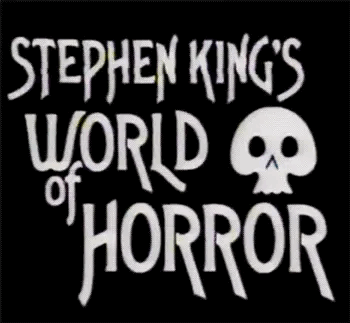
This book is the most straightforward account of what it is like to be a writer from one of the great (if not greatest) modern novelists of our time. It also offers invaluable advice to aspiring and new writers who are looking to hone their craft, but without the flowery, navel-gazing musings so often found in books of a similar ilk. King's real-life descriptions of his struggles with addiction, his pre-writer life, the early days of his success, and his recovery after a horrific accident where he nearly lost his life are related back to his craft so masterfully, and, as such , I cannot recommend this book more to those who are either interested in the mechanisms behind being a writer, or want to be writers themselves. It also serves as a great book to refer back to after you become a writer to make sure you don't get bogged down in common writing mistakes that inadvertently make your work clunky or uninteresting. To paraphrase, King states, to become a writer, talent is essential, but if you don't have the right toolbox to use when writing your masterpiece, its going to look sloppy. King's toolkit, which he elaborates on in his book, is guaranteed to prevent this from happening.
The Virgin Suicides, Jeffery Eugenides (1993)
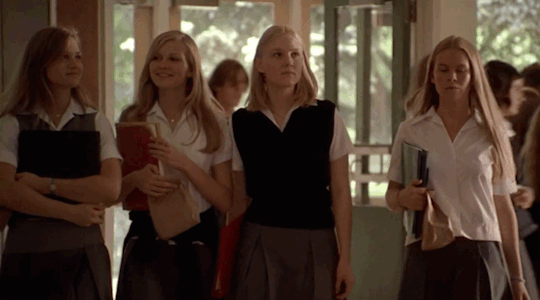
I read this novel after I saw the movie of the same name, which was Sofia Coppola's directorial debut. Like most book-to-movie adaptations, this novel contains slight deviations and more character development than the movie, but is still a deeply fascinating examination of both the psyche of the Lisbon sisters, the minds of the neighborhood boys who were obsessed with them, the paranoia of suburbia, parental oppression, and neighborhood carelessness. I remember that this movie came out when I was 16, but we had to wait until it came out on DVD to see it, because, as the movie dealt with teenage suicide, and the place I lived at at the time had one of the highest youth suicide rates in the state, it was banned in local cinemas. The most interesting character in both the book and the movie was 14-year-old Lux Lisbon, primarily because of her rebelliousness toward her parents' overbearing protectiveness (mostly from her mother, but the spineless dad is definitely an enabler) which borders on abuse. This is perfectly juxtaposed with her inherent need to be an ordinary teenage girl in an abnormal household, and the oppression of this need leading to unbridled promiscuity. The accounting of the Lisbon sisters' story in both the movie and the novel, however, is unreliable, as it is never told from the point-of-view of the sisters themselves, but from the grown-up versions of the neighborhood boys who we were in love with them, and continued to be so after their deaths. The passing of the Lisbon sisters left a lasting impression on each of the boys, and still haunts them in the present. Decay in both the novel and the movie in the form of the diseased neighborhood trees and the decline of the local auto industry, are used as both foreshadowing of worst things to come, as well as an allegory of the Lisbon's family life. Finally, the accountability of the neighborhood and neighbors, and their willingness to turn a blind eye as to what was happening in the Lisbon household is also examined. Their fleeting, off-the-cuff and detached observations, as well as the (mostly) silent monitoring of the girls by the boys, is an excellent example of the damaging consequences of the bystander effect, which all to often leads to disastrous ends. the accountability of the neighborhood and neighbors, and their willingness to turn a blind eye as to what was happening in the Lisbon household is also examined. Their fleeting, off-the-cuff and detached observations, as well as the (mostly) silent monitoring of the girls by the boys, is an excellent example of the damaging consequences of the bystander effect, which all to often leads to disastrous ends. the accountability of the neighborhood and neighbors, and their willingness to turn a blind eye as to what was happening in the Lisbon household is also examined. Their fleeting, off-the-cuff and detached observations, as well as the (mostly) silent monitoring of the girls by the boys, is an excellent example of the damaging consequences of the bystander effect, which all to often leads to disastrous ends.
Eugene Onegin, Alexander Pushkin (1831)
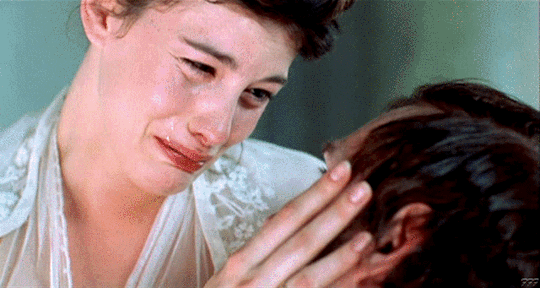
As opposed to the entry above, I read the novel before I saw the movie, which did a pretty good job, considering the novel was written entirely in prose. 230-odd pages of verse penned by one of the greatest Russian poets of the 19th century may seem like a big ask to read, but I can assure you, it is entirely worth it. It tells the tale of an uppity lothario named Eugene Onegin, who, bored with St. Petersburg society, decide to move to his recently-deceased uncle's country estate. This move ultimately leads to Onegin leaving a trail of destruction in his wake, including ruining a woman's reputation, killing her fiance after he challenges Onegin to a duel to defend her honor, and spurning the advances of local provincial beauty Tatiana. Onegin then flees back to St. Petersburg, and after several years, crosses paths once again with Tatiana, Who is now married to a high-ranking general and is a permanent fixture of the St. Petersburg high-society set. When Tatiana shows a grace she never possessed before, and treats him with a cold distain whenever they cross paths, Onegin decides that he loves her, and pursues her doggedly, leading to a show-down between the two would-be lovers, but not in the way you would think. His chance at redemption is alt for nought. Although Tatiana admits her love for Onegin, she also tells him that she would never betray her now-husband to be with him. It is a scintillating slow-burn of a tale of love, loss and propriety in a way that can only be recounted by Pushkin. Interestingly, Pushkin himself was fatally wounded in 1837 after he challenged his brother-in-law, Georges-Charles de Heeckeren d'Anthes, also known as Dantes-Gekkern, a French officer serving with the Chevalier Guard Regiment, to a duel, as he had attempted to seduce the poet's wife, Natalia Pushkina. In some cases, life really does imitate art.
The Book Thief, Marcus Zusak (2005)
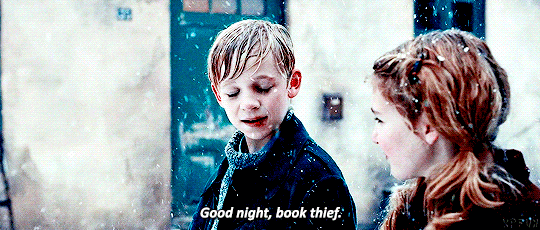
I like the voyeuristic feel of this novel, even if this sounds a little strange. The special interest that Death himself takes in the main character, Liesel Meminger (who is The Book Thief in question) is perfectly juxtaposed over the horrors of living in WW2 Germany. It’s a charming story, recounted by Death himself, all the way up to the main character’s death many years later. It gives us special insights into all the characters and they way they think and act, with no-holds-barred. A unique and truly good read.
The Big Sleep, Raymond Chandler (1939)
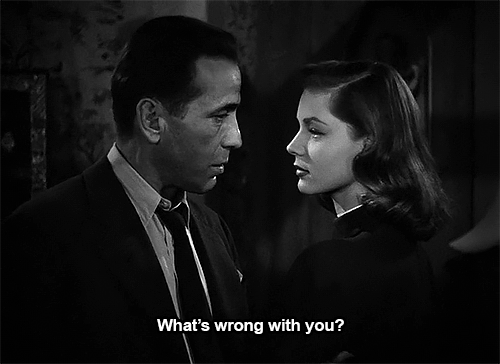
This is hands-down the best noir detective novel ever written, a point I regrettably missed when I first had to read it for Advanced English in Year 11 at school. It has all of the grit expected of the genre and follows Chandler’s mainlining private detective Philip Marlowe, who is hired by a rich family to deal with a blackmailer, Arthur Geiger. His life takes an unexpected turn as he pursues the case and Arthur is found dead.It is both a good detective mystery and a perfect layout for a by-the-numbers look at how this genre should be written. Cool side fact: The Big Sleep is a euphemism for dying.
The Girl With the Dragon Tattoo Series, Stieg Larsson

Lisbeth Salander is still the best kick-arse anti-heroine around, a fact that is evident from her character being re-imagined by David Lagercrantz in further novels in the Millenium series after Steig Larsson’s untimely death. At the time these novels came out, I remember everyone on the beach reading a copy, and I especially enjoy the first entry in this series, which explores a missing woman, the demise and rise of journalist Mikael Blomkvist, the back-story and growth of Lisbeth Salander, female sex-trafficking, and feminist themes. On top of being a missing-person story, it is also a murder mystery, and has an awesome twist at the novel’s denouement. A thrilling, wild-ride of a read.I think I especially enjoyed it because I like reading novels situated around serial killers. That’s all I’ll say. Read the book.
We Need to Talk About Kevin, Lionel Shriver (2003)

This book is just brutal and a no-holds-barred look at whether killers are born or made.It is told by Eva Khatchadourian in a series of letters to her husband, Franklin, which discuss their son, Kevin, and his behaviour growing up, as well as her reactions to said behaviour, which ultimately lead to a thrilling, if unnerving, conclusion.
IT, Stephen King (1985)
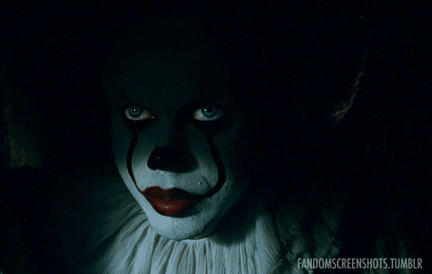
Although it is a gigantic read at 1,128 pages, IT is worth every page. Stephen King's novel about a demonic, otherworldly entity that preys and feasts on the children of Derry, Maine every 27-odd years is a masterpiece second only to his equally weighty saga The Stand. It tells the story of childhood friendship, and the strength one can have when standing together with friends. It is a perfect tale of good triumphing over evil, which is a familiar theme in King’s books which tends to get overlooked in favour of the more horror-like elements. Be warned, it does jump back-and-forth in time, and there are a few awkward parts of the book that the movie thankfully skipped, but they don’t really feel out of place in the novel. This “clown” will give you nightmares, but the ultimate triumph of The Loser’s Club is worth hanging in for.
The Lovely Bones, Alice Sebold (2002)

I've gotta admit, the ending was unsatisfying, but is probably a more realistic account of what usually happens in unsolved cases such as Susie Salmon's. There is a karmic vibe, and at least the killer is disposed of in an unceremoniously undignified way. It’s ultimately a tale of how grief can keep you stuck, and how acceptance is part of moving on. Totally skip the movie and just read the book.
I just realised, all but one of these books has been made into a movie, whether it be a box-office hit or Indie, which I suppose really just attests to how good they are. I’ll be back with another top 10 favourite books soon no doubt. See you on the flip-side.
#ilovebooks#justread#top10books#top10lists#anna karenina#it#the lovely bones#we need to talk about kevin#the big sleep#On writing#the virgin suicides#eugine onegin#the girl with the dragon tattoo#leo tolstoy#stephen king#jeffrey eugenides#marcus zusak#alice seebold#raymond chandler#lionel shriver#alexander pushkin#russian literature#classic literature#literary books#horror novels#noir#novel genres#bookworm#writer biographies#writer help books
16 notes
·
View notes
Text
Boris and Theo in Russia
I so desperately want to write something about Boris and Theo in Russia, like:
- Theo had a small hope that Boris would resurface in time for Christmas, like he usually did after Amsterdam
- however, Boris seemed to have disappeared completely; Theo told himself that it’s for the best
- suddenly Theo gets a call from Boris on 4th January, with not much explanation, a lot of expression and an “it’s about time you get to experience a proper Christmas”
- “but Christmas was two weeks ago”/ “come on Potter, the true rozhdestvo is on 7th January, let’s not listen to my Polish colleagues”
- “come with me to Moscow”
- and this is how Theo finds himself in the Russian embassy, which is not even open full time at the moment
- meanwhile, Boris smiles his wicked smile at the elderly lady who works there and moves a cashmere jumper across to her
- a Russian visa is immediately issued; normally it takes about a month
- this is the first time Theo has seen someone use a jumper as a bribe; Boris just laughs and tells Theo that the trick is to never go to any government office without a box of chocolates just in case
- they get a direct flight to Moscow Domodedovo airport the next day
- it’s snowing and no one takes the snow away, “the money for this was stolen long ago” Boris explains curtly
- “can’t remember the last time Moscow was so warm zimoi” it’s only -10 Celsius
- Theo watches the black-and-white trees, dirty snow and abandoned factories from the taxi window, thinking of Boris
- Boris books a hotel not far from Kuznetskiy Most metro station
- they walk towards Tverskaya Street, buying pirozhki with meat
- Theo marvels at the street lights and overall happy atmosphere - very different from what he saw on the way there
- “a lot of money can be stolen on street lights” according to Boris, but despite his cynism, he too seems to enjoy himself
- in Uspenski cathedral, Boris lights a candle; his eyes become slightly orange from all the candle fire
- he murmurs something in Russian, like a prayer - knowing Boris’s relationship with religion, it can be anything
- Theo watches the Orthodox icons on the walls, thinks they should visit Tretyakovskaya gallery tomorrow
- the cathedral gets busier, people are ready to celebrate Christmas eve; Boris lights up another candle and abruptly leaves
- they walk around until Theo can’t feel his fingers
- Boris pulls off his woolen gloves and silently puts them on Theo, ignoring the protests
- they turn into some narrow passageway, the combination of yellow and pink houses reminds Theo of a Battenburg
- “before revolutsiya, this part of Moscow was called Khitrovka” says Boris, “the criminal heaven”
- the passageway is so narrow that if they face each other, backs to the opposite walls, there is only a couple of inches between them
- Theo looks at Boris and thinks of old Moscow described by Tolstoy and later by Bulgakov, the books he’s read for his Russian class
- this place, old Khitrovka, feels a lot more Boris than shiny lights they have just abandoned
- Boris looks up at him, his eyes sparkle, “in those times it would be very inadvisable for someone like you to walk here alone, Potter”
- “but I am not alone” Theo whispers before he can stop himself
- Boris finally steps into some rather dodgy looking bar, before his fingers get frostbite
- the tables are covered by rubber clothes, kleenki, and a tired looking waiter brings them vodka in granennye glasses before they even ask for it
- Theo manages a spasibo
- Boris murmurs along with a song about rabbits
- they order plates of pelmeni with sour cream and a bottle, all under 400 roubles (7 dollars) in total
- Boris engages in a long conversation with the owner, who points at Theo more often than not
- Theo really wants to ask whether the whole universe knows about him
- but it really appears as if the whole Boris’s universe knows about him...
- after this much vodka Theo can’t help but think that he would happily live in this cold and foreign place just to witness more of Boris in his element
- “just wait till you see Odessa” Boris laughs, “and you won’t even need a visa”
- they talk about Russian literature because somehow vodka encourages it
- at a certain point, Boris decides to recite Blok, translating as he goes along
- his translations are shit but Theo understands everything based on the emotions in Boris’s voice
- “Russians take pride in their misery; perhaps there is something to be learnt there” Boris explains in his I-am-drunk-hence-I-can-do-philosophy-even-better-than-usually voice
- clock strikes midnight
- “merry Christmas, Potter”, Boris says tenderly and briefly touches Theo’s hand, quick enough for everyone else to ignore but long enough for Theo to exhale a bit too loudly
- they leave and walk towards Arbat, stopping outside Pushkin’s monument
- Boris looks at Theo, whispering something in Russian
- Theo recognises the lines from the letter that Tatiana wrote to Eugine Onegin
- “no, no one on this earth is there to whom I’d give my heart”
- “but your honour is my guarantee and to that I entrust my destiny”
- and Theo thinks back to the poem, to the way Onegin rejected Tatiana only to realise his mistake years later
- Pushkin’s monument stares at him through the night, as if saying “yes, Theo, this is why I wrote Onegin like that in the first place”
- perhaps it is here, in deserted Arbat, in front of Pushkin, that he should listen to some more Russian wisdom
- he looks at the snowflakes melting in Boris’s hair
- their kiss is cold at first, lips freezing, Theo’s glasses bump into Boris’s face
- warmth inside them works better than vodka though
- Pushkin and his wife Natalia smile carefully at them - but that’s definitely vodka talking
- the breadth of Russian love, however, doesn’t have boundaries
-------------
Quotes from Pushkin’s Onegin are taken from here: http://www.pushkins-poems.com/Yev311.htm
#the goldfinch#tgf#boreo#boreo headcanon#boris pavlikovsky#theo decker#eugene onegin#moscow#rozhdestvo
9 notes
·
View notes
Text
@omghoshii: "Saihara." His voice is curt, and Hoshi either couldn't afford it or just couldn't succeed in actually wrapping his gift. Didn't matter too much, because soon it was being thrusted in the others face- although Hoshi's head hung low (perhaps to hide the rising embarrassment to his cheeks). A black umbrella (? it's almost fall) and... the book Eugine Onegin were extended forward. "Noticed ya don't like the sun too much. Happy Birthday. Sorry it ain't wrapped.... but, I hope you like it anyways."
honestly, you didn’t expect anything, especially not from hoshi of all people. up until now, it was difficult to tell if the other saw you as a friend –– his reserved nature & curt tone of voice tried to convince you to stay away. but the book & umbrella in your hands tells a completely different story, one portraying hoshi as someone who listens.
looping the umbrella string around your wrist, you flip the book over to read the back. you’d never read a novel like this before –– epic poetry isn’t something you’d normally reach for, but it’s worth a try. ❝ i-it’s fine, don’t worry ! the fact that you wanted to give me something like this really means a lot… thank you. ‘

whatever worry that was present on your face had faded away into nothingness, a bright smile taking its place. ❝ do you like russian literature, hoshi-kun ? ‘
#omghoshii#ic –– & on your back; you carry the moon.#talent development plan –– young detective; it's time to spread your wings.#[#bless u hoshi#thank you for sending this in!#]
1 note
·
View note
Text
Letters from the Depths of Solitude. On Nabokov the Poet of Prose
Vladimir Nabokov was a prolific writer of poetry, and some of his poems are rather cherished and known by heart by the educated Russian public. yet despite Nabokov's fame as a writer of prose (in which he remained a poet, all these alliterations), his poetry did not receive a wide readership. I've never seen a complete edition of his poems. Nabokov's poetry is not a widely-cherished or often-spoken part of his oeuvre. I wonder why that is. he wrote poetry most abundantly as a youngster, but still, throughout his life, he wrote poems every now and then.
ah yes, Nabokov wrote rhymed poetry. I'm sure this is the issue for the English-speaking world never charmed by Nabokov's poetry. even the Professor Shade's poem in Pale Fire is, unfortunately, rhymed. one of the very few unrhymed things by Nabokov was, ironically, his translation of Alexander Pushkin's Eugine Onegin (novel in verse, tightly rhymed in the original). Nabokov cared so much for the nuances of meaning that he couldn't care for the rhymes. in the attempt to follow the nuances of meaning in the original, Nabokov produced something like "an encyclopedia of Russian life" that Eugine Onegin was praised as in the original, only Nabokov created a much different encyclopedia; he drained the text of its poetic fluency. Engine Onegin in original is astonishingly free-flowing, you see. it's as if exhaled in one breath. and Nabokov added an ample comment section explaining who is "barin" and so on, instead of translating it simply "the lord" or "nobleman" in the text or whatever suited his needs.
in short, no one can read Nabokov's Eugine Onegin. and, although written in free verse, it is metered. what's the use of writing metered poetry without rhyming it? sure, the original is metered, but the original is also rhymed, so why this translation choice? very peculiar. so yes. even though Nabokov very cruelly laughed at all the previous translations of Eugine Onegin, he ended up producing possibly the most dreadful one. evidently, Nabokov was not a good poet. but he was not a writer of prose either. he wrote poetic prose. he was the poet of prose, if you will
14 notes
·
View notes
Text
Ive read eugine onegin last week and !! holy fuck now im into dark acamedy its weird
0 notes
Text
0 notes
Quote
Meanwhile, forget all toil and trouble, Take what is offered of delight. I know that life is but a bubble, My fondness for it is but slight; I am deceived by no illusion; But I salute hope's shy intrusion, And sometimes in my heart I own I would not leave the world, unknown. I have no faith in its requiting My labors, yet perhaps this name May wear the laurel-crown of fame, And yet win luster from my writing; One line, held in the memory, May speak, like a fond friend, of me.
Alexander Pushkin - "Eugene Onegin" XXXIX
21 notes
·
View notes
Text
Doubles
Wilson–Nabokov disagreement and the ensuing argument over Nabokov’s translation of “Eugene Onegin” curiously resemble the course of relationship between Lensky and Onegin, the main male characters of the novel.
Wilson is Lensky, of course, and Nabokov is Onegin. They are polar, “wave and fire are not more dissimilar than they are,” there is a concealed rivalry in their friendship, as well as obvious disparity. Lensky starts an attack, Onegin wins the fight. Lensky is good-natured and sincere, Onegin is detached and cold. Sympathy is on Lensky’s side but admiration is on Onegin’s.
2 notes
·
View notes